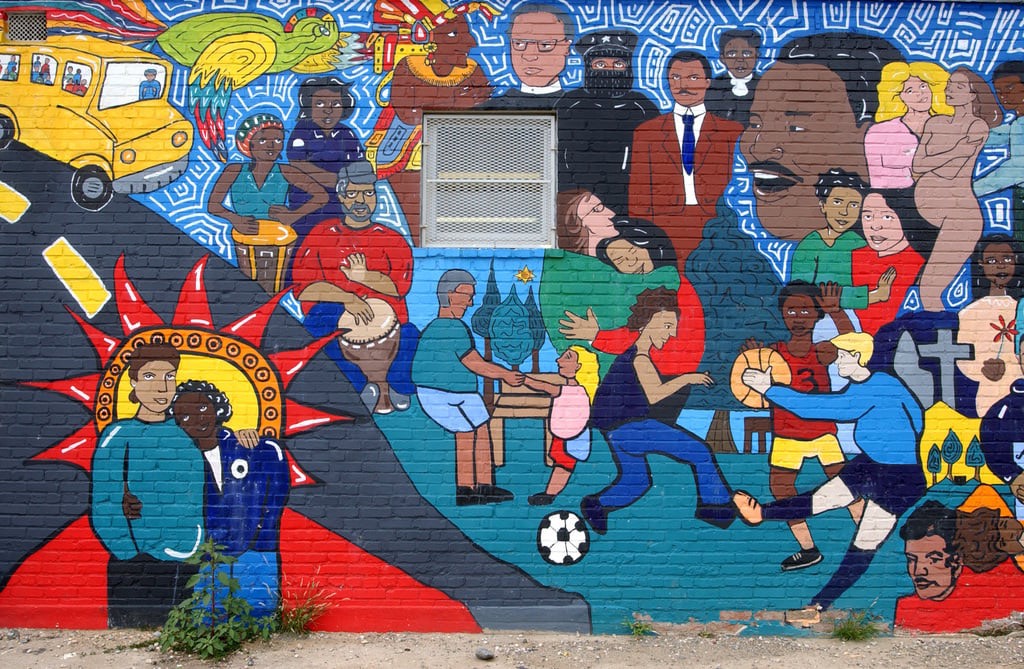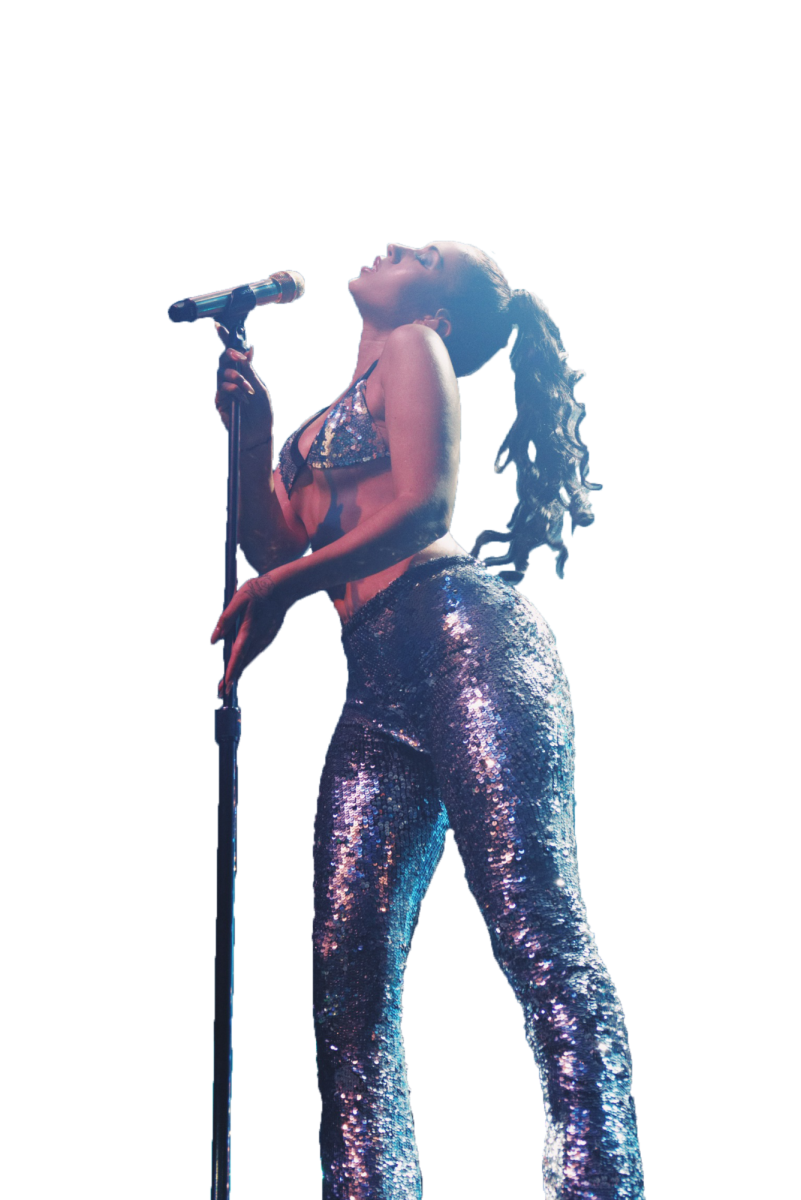Celebrity worship has deified people, making them seem above criticism. Alternatively, the fall is brutal once celebrities no longer display idealizations. Sometimes, celebrity worship leads to becoming the target for mockery, dehumanizing problems such as mental health, racism or housing insecurities people face in their everyday lives.
Especially in the modern age where globalization and social media combine to make every person we meet so much smaller, celebrity worship dehumanizes people.
“Donald Trump, if you can hear us, please, Donald Trump, please save me. Please save me, Donald Trump.” These are the words a man spoke in a car while police surrounded his vehicle. His hands lifted in the air while his eyes are closed, as if contacting the celebrity-turned-president telepathically. Celebrity worship is common in pop culture, and the probability that someone has participated in it, even in the smallest acts, is high.
Celebrity worship takes the image of a celebrity, usually an artist, and glorifies them to the level of what would be considered a god. This is only enhanced by social media, everyone knows who this person is because everyone else has posted about it.
A recent trend that people may remember is the “Thank you, Beyoncé” trend. This started because many people pointed out that different artists credited their inspiration to the iconic singer. This trend resulted in people thanking Beyoncé despite Beyoncé having very little or zero influence on their situation. TikTok users would post their achievements while praising the major artist.
While this is just a trend (with some truth based in Beyonce’s icon status), this is another example of how celebrity culture can take a turn for the worst, especially for people who are new to popularity. Shifting spotlights and unwarranted critiques from the internet can leave a person confused, stressed and overwhelmed.
Celebrity worship also factors in how much hype a person has while a trend is happening. Haliey Welch, known for the viral video of her responding to a question with the answer, “hawk tuah,” became a star after making $65,000 from merchandising and opening up the “Talk Tuah” podcast in June 2024.
Welch turned the attention she was getting into a stream of revenue, however, this soon ended after she found herself in a cryptocurrency scandal — a long fall from her 15 minutes of fame. There is also stan culture, which thrives on apps like X (formerly Twitter), TikTok and Instagram. The term “stan” originates from the Eminem song, “Stan” which describes an obsessive fan who writes letters to the rap artist himself. The song ends with Eminem’s fan displaying erratic behavior, hurting his partner and even driving his car off a bridge.
In reality, stans are essentially fans who take devotion to the next level. Actions taken by stans include: making posts dedicated to who they’re obsessing over, creating works of art and even stalking people in the name of their devotion. These actions vary based on who they idolize.
As stated by Cambridge University, there is a large difference in the frequency of how much people get stalked based on gender identity. “Stalking in the general population is common – in the UK the lifetime prevalence of being stalked is 15% (20.2% for women and 9.8% for men (Office for National Statistics 2016)). The prevalence of stalking of celebrities and public figures is less researched, but probably much higher.”
Chappell Roan, the queer singer whose fame skyrocketed after the popularization of her 2023 album, “The Rise and Fall of a Midwest Princess,” advocates for the mental health of artists, especially those who are new. “Just to let you know, every woman is feeling or has felt similar to what I’m experiencing. This isn’t a new situation,” she said.
Roan has been the victim of stalking herself. She has had stalkers show up at her parents’ house and has been kissed without her consent.
The invasion of the privacy of celebrity women is not new either. Following her death, the body of Marilyn Monroe, the famous sex symbol, went missing for 6 hours before finally being delivered to the morgue. Though unconfirmed, the eerie rumors that necrophiliacs had access to Monroe’s body sends chills down the spines of many fans.
One of the more infamous cases of celebrity worship going wrong has found itself back in the news cycle again, with a more modern case: the death of famous Mexican-American singer Selena Quintanilla-Pérez.
Yolanda Saldívar, the president of Quintanilla-Pérez’s very own fan club, murdered the singer. Prior to committing the murder, Saldívar had quit her job as a nurse and became a manager for one of the fashion stores Selena owned. Quintanilla and Saldívar not only had a fan-celebrity relationship, but the two were also friends.
Saldívar worshiped Quintanilla, dedicating much of her life to the singer. Her obsession became violent, leading to actions that changed not just Selena’s life but Saldívar’s as well. Yolanda’s parole hearing was conducted on March 30, 2025, with the decision being that the court has denied parole to Saldívar, with her next hearing being in 2030.
Celebrity worship is terrible, especially in the modern day and age, as the wrong people are made famous. Especially on TikTok and Instagram, “lolcows” run rampant as laughingstocks, entertainment for people who laugh at the misfortune of others. Defined as a person “milked” for laughs, lolcows are prime examples of dehumanization.
Contrary to the worship we see for some celebrities, lolcows bring the internet together to bully them. Lolcows produce a sense of unity similar to the catharsis of watching someone in middle school completely embarrass themselves — without acknowledging how embarrassing their actions are.
Take, for example, the infamous TikToker Tophia Slydell, known as TophiaChu. She often goes on TikTok’s Live and chats with her fans. However, TophiaChu is infamous for her constant violations of TikTok Live guidelines. TophiaChu often argues with her family members on these livestreams and discusses her reasoning with her fans on why she prefers not to seek a job.
On March 11, a carjacker attempted to rob the car that the Slydell family was living in, and this resulted in the carjacker fatally shooting Tophia Slydell’s brother, Donald Slydell Jr. The article covering this event starts off with how the internet still refers to Donald Slydell Jr. as “brotherchu” signifying that even in death, social media makes a joke out of people. A tragedy being pushed into the public eye too often results in a lack of respect.
Whether or not this attack on the Slydell family was premeditated and done by someone who tracked them down through social media, this shouldn’t have happened, and the sensitive information about this should not have blown up on social media platforms either.
Oftentimes, when people idolize celebrities, lolcows are laughed at, when stans mobilize to obsess over tiny details of the person they idolize, disaster ensues. Tophia Slydell was not just a lolcow on the internet, but she was a woman of color with housing insecurity. Selena Quintanilla was not just an idol, but she was a young and aspiring woman of color whose final act was trying to help her would-be murderer seek medical attention.
Celebrity worship is a detrimental action people take because it is the direct opposite of humanizing, whether this worship goes in the way of idolizing a person or idolizing the enjoyment of embarrassing a person. Obsessing over someone or relentlessly making fun of them isn’t acceptable in person, so why do it online?
What can be done about the problem of celebrity worship is much easier said than done. To combat this reckless mindset, one has to first be grounded in the reality of things. The reality is that while the people that society idolizes can produce extraordinary things or be entertaining through their misfortunate, combatting celebrity worship means seeing these people as people first.
By humanizing the idols and celebrities that are online, one can regain a sense of everyday empathy. This mindfulness leads to being able to reason why someone can react emotionally, like how Chappell Roan did against the paparazzi. Humanizing leads to understanding the tragedy of Tophia Slydell’s incident, how losing someone is amplified when it is broadcasted to the public.
Celebrity worship isn’t something to normalize, and by grounding ourselves and humanizing our icons, we do everyone a favor.






